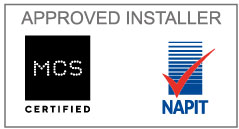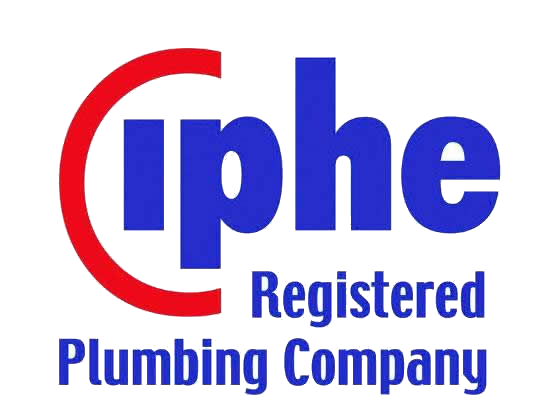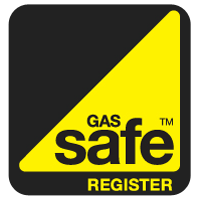- Turn off the gas supply immediately at the meter control valve or emergency control valve. Look near the meter or where the gas supply enters the building. For LPG turn off the bottles or for bulk tanks locate the valve on the outside of the building near where the pipe enters.
- Extinguish all sources of ignition
- Do not smoke
- Do not operate electric light or power switches (ON or OFF) as the small spark inside the switch may be enough to ignite the gas.
- Ventilate the building by opening doors and windows
- Ensure access to the premises can be made
- Call 0800 111 999 to report the escape to the National Gas Emergency Service
- Call us 01239 613423 – we will always respond as quickly as possible to gas emergencies, and you will need a Gas Safe engineer to fix the leak and reinstate your supply.
Archives: FAQs
What should I do if I find an oil leak?
- Turn off the supply at the isolating valve on the oil tank.
- Mop up spills with sand, earth, cloths or any absorbent material.
- If the leak is in the oil tank – try to collect as much as possible into cans, buckets etc.
- If the leak is severe, try to form a dam with sand or earth until help arrives.
- Phone the Fire Brigade if you cannot cope and pollution of a watercourse is possible.
- Phone your installer or your oil supply company to get the tank pumped out.
Why Service a boiler?
An annual service to your boiler helps keep it running efficiently and smoothly.
As well as ensuring your it’s running safely, servicing your boiler also helps to make sure that your boiler is running as efficiently as possible – saving you money on your fuel bill.
How much does an Air Source Heat Pump cost?
Because heat energy is being extracted from the air, there are considerable running cost savings over fossil fuelled heating systems and, arguably more importantly, you are future proofed against energy price increases.
But fuel costs are only part of the story.
Unlike gas and oil based systems, heat pumps require no costly regular maintenance or annual safety inspections. And because a heat pump has a reasonable life expectancy of 20 – 25 years (typically twice that of a boiler), the investment costs over the working life of the system are demonstrably lower.
How does Solar Thermal work?
Solar thermal heating systems harvest the sun’s energy through collector panels, typically mounted on your roof. The sun heats up fluid travelling in pipes embedded in the panels which is then pumped to a heat exchanger inside a water cylinder. There, the heat exchanger transfers the energy from the fluid to the water in the hot water tank.
What should I do if I’ve got a leak?
- Turn OFF the stop tap
- Turn OFF the boiler or immersion heater
- Turn ON all hot and cold taps and leave running until they stop
- Turn OFF the ELECTRICITY at the main switch if water is dripping from lights, switches etc.
- If water is dripping through the ceiling poke a screwdriver through any bulge to drain trapped water
Can you install Central Heating in a listed building?
We’re experts at installing central heating in old buildings including Barn Conversions, Renovations, Places of Worship & Listed buildings. We’re accustomed to working with conservation bodies to develop and appropriate solution and have a sympathetic approach – tailoring our system and design, using period radiators and pipework to suit etc.
What is Biomass?
Biomass Boilers burn biological material – generally wood – in the form of either logs, chipping or pellets, to create heat.
How do Ground Source Heat Pumps Work?
Ground source heat pumps draw as much as 75% of their energy from freely available, inexhaustible solar energy stored in the ground.
The earth stores an enormous amount of solar energy from both solar radiation and rainfall and more than 1m below the surface, you’ll find a stable source of heat year-round.
To extract this heat energy, ground collectors consisting of flexible polyethylene pipes are buried in the earth, either horizontally or vertically. A mixture of water and anti-freeze is then circulated through pipe loops, attracting the heat and transferring it to the heat pump.
Can you use Air Source Heat Pumps for heating and cooling?
Air source heat pumps can be used for both heating and cooling, as well as domestic hot water and swimming pools. They can be connected to radiators, underfloor heating, or a wall-mounted controllable fan unit.
Air source heat pumps can be used for heating all year round between +35°C and -25°C – which makes them ideal for the UK – and because they use the outside air as a fuel source, you’ll have an always available and inexhaustible source of heat.
What is the difference between Underfloor Heating and Radiators?
Heat from traditional radiators rises, meaning that the hottest part of the room is the ceiling. With an underfloor heating system, the heat moves from the ground upward – which means the parts of the room that are the warmest are the first 1.7m – the area we live in. The gentle radiant heat from underfloor heating doesn’t dry air in the same way that radiators do, leaving moister air that is kinder to your lungs and to your furniture.
How does providing the grid with electricity help me?
Your Solar PV system is connected to the mains electricity grid and, because you can’t store electricity your panels generate, any electricity that you don’t use flows back into the grid for use by others.
As a producer of electricity, provided your system is installed by an MCS registered contractor, you’ll be therefore paid a Feed-In Tariff for the energy you don’t use. This is set at a flat rate of 50% of the capacity of the system – no matter how much of the electricity you generate you actually use.
Do Solar PV Systems work on a Cloudy Day?
Solar PV systems rely on sunlight not heat so produce sufficient power even on a cloudy day. The optimal weather can actually be during colder seasons, when it can be very cold and very sunny.
What is the best location for a PV Solar Module?
The best location for a PV solar module is on a south-facing roof or side of a building and an incline of around 30°








